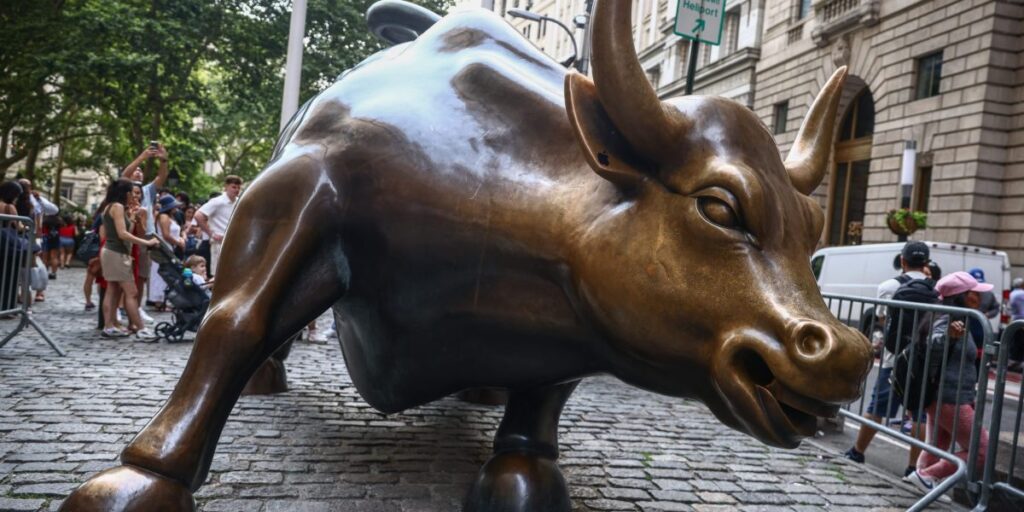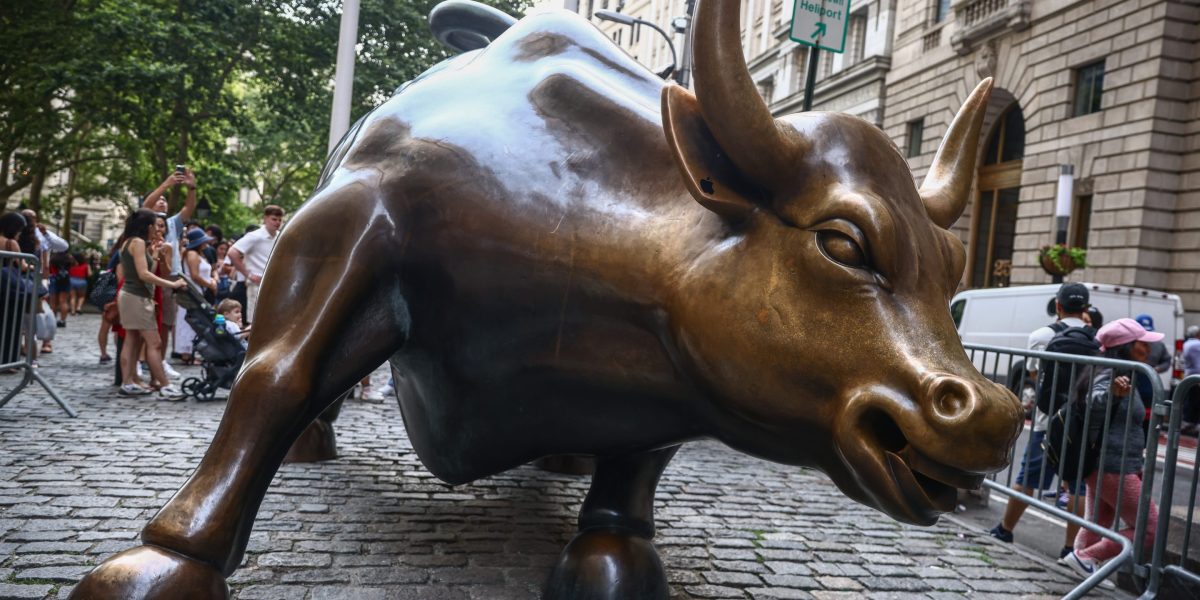Despite the stock crash, the AI-fueled bubble will soon regain momentum, economist says
Capital Economics said a recession is unlikely and growth will even reaccelerate after a soft patch in the second half of this year.


The stock market suffered a brutal bloodbath last week as recession concerns shot up, but Capital Economics predicted the artificial intelligence boom will continue to lead the way higher.
The surprisingly weak July jobs report on Friday and the sharp deterioration in the Institute for Supply Management’s manufacturing index on Thursday sank stocks. For the week, the S&P 500 lost 2.5%, the Nasdaq fell 3.6%, and the Russell 2000, which previously soared on a rotation into small caps, tumbled nearly 7%.
Meanwhile, economic growth concerns have raised expectations for more aggressive easing cycle from the Federal Reserve, with Wall Street seeing rates eventually plunging by 200 basis points or more.
In a note on Friday, Capital Economics senior markets economist Diana Iovanel said the stock rally should resume.
“Renewed fears of a US recession have increased the chances of additional rate cuts from the Fed,” she wrote. “But we don’t think that the US economy will stand in the way of an equity rally for much longer.”
Stock valuations are nowhere near indicating an “economic cataclysm,” and credit spreads are still close to record lows, she added. Capital Economics sees the Fed cutting rates at each meeting from September until next July.
Iovanel said a recession is unlikely and growth will even reaccelerate after a soft patch in the second half of this year.
“So we don’t expect risk sentiment to deteriorate much further,” she said. “The upshot is that we doubt the economy will stand much in the way of the AI-fueled bubble picking up steam again soon.”
Indeed, recent earnings reports from Microsoft, Meta and Google indicate they spent a combined $40.5 billion on the infrastructure, land, and chips that power their AI services during the second quarter. And each company indicated that those numbers will only get bigger next year.
Such spending will likely end up at AI chip suppliers like Nvidia, which has seen astronomical increases in revenue and its stock price in the last few years.
Others on Wall Street have called for investors not to overreact to the sudden weakening in jobs. Claudia Sahm, a former Fed economist who developed the “Sahm Rule” recession indicator, told Fortune on Friday that she’s not concerned right now that the U.S. is in a recession, pointing out that household income is still growing while consumer spending and business investment remain resilient.
Still, recent trends in the labor market have looked weak at best, said Sahm, who is now chief economist at investment firm New Century Advisors.
“It’s been very accurate over time, so that shouldn’t be dismissed,” she added, noting that “recessions can build slowly, and then come quickly.”





